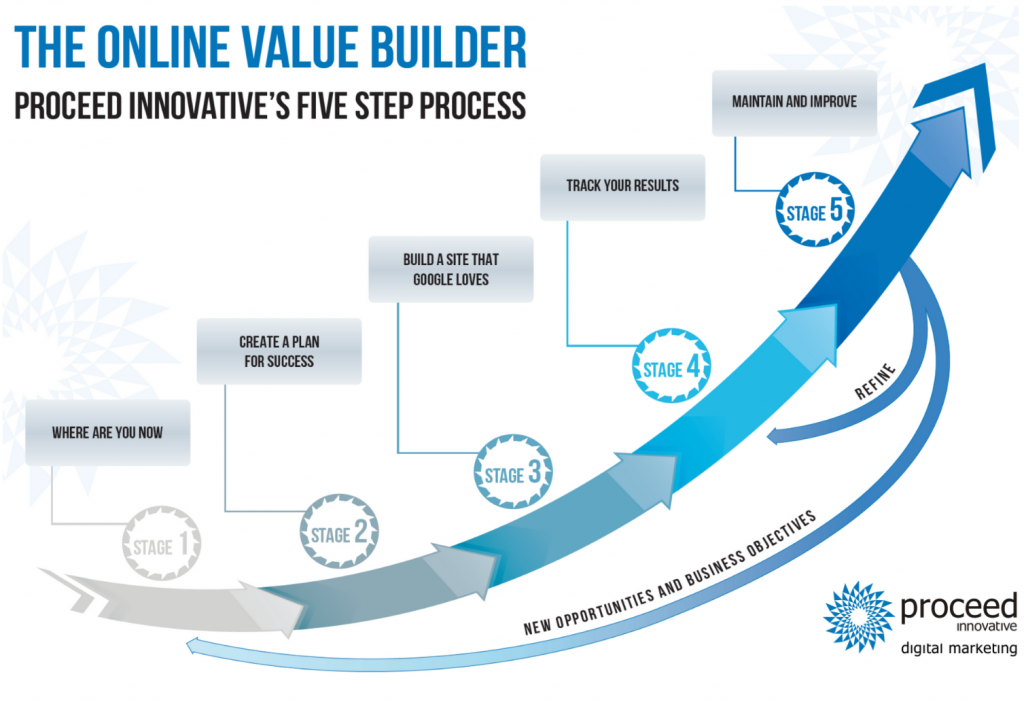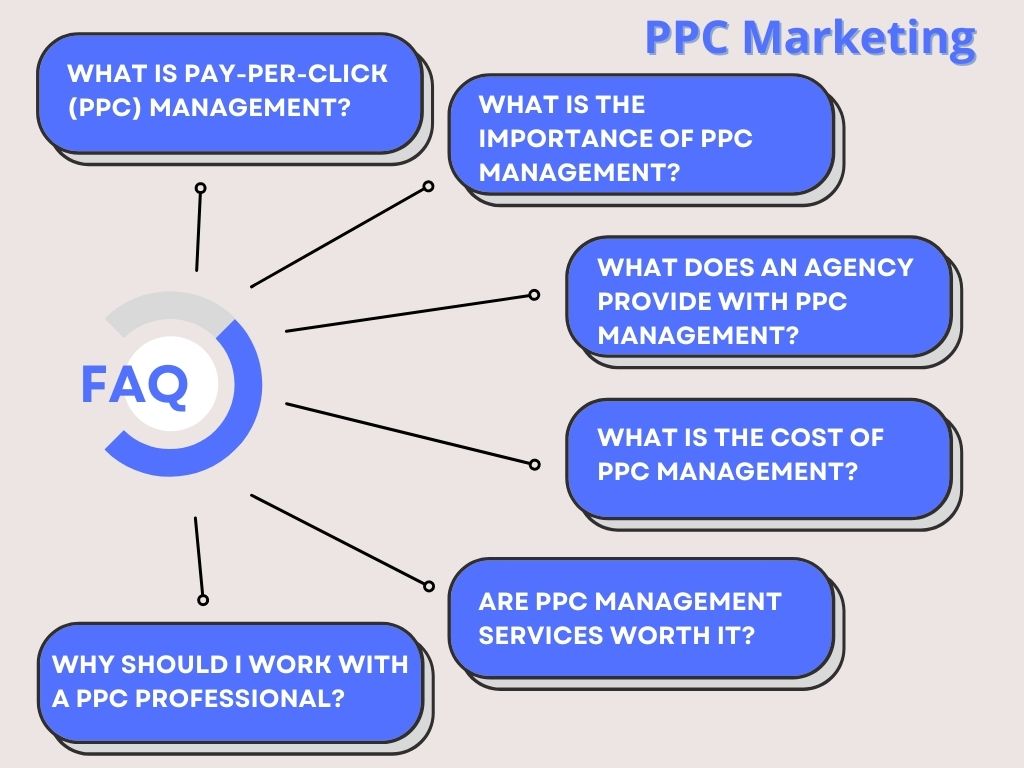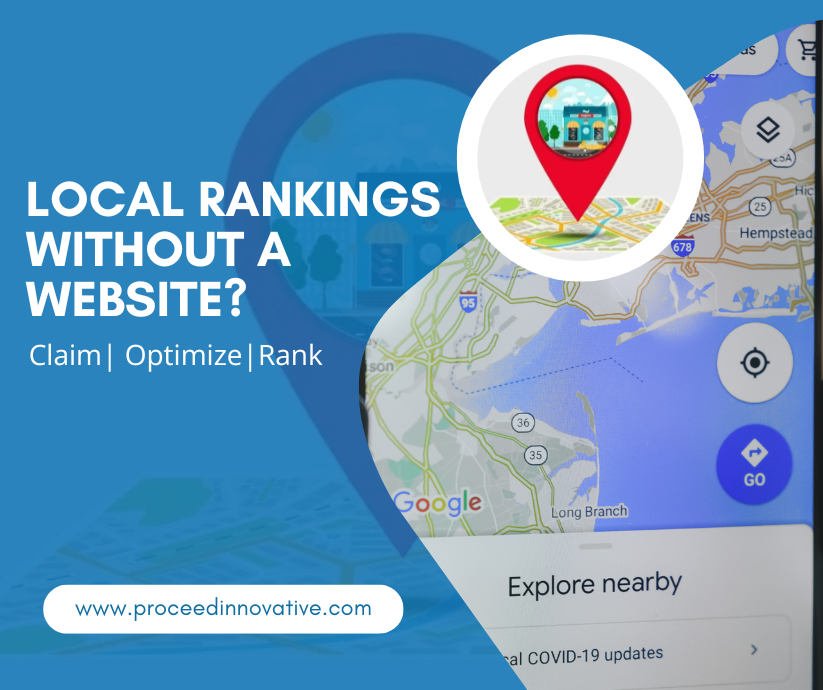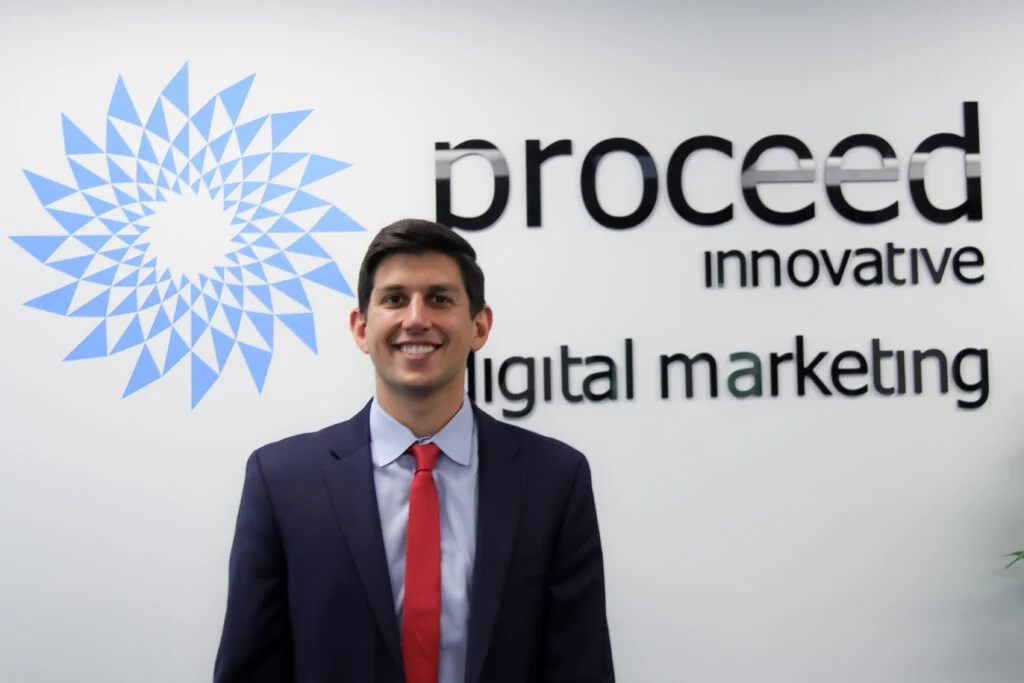Digital marketing is crucial for the success of any business, especially businesses that rely on generating leads online. An effective digital marketing campaign improves your online visibility which brings in more traffic, resulting in more leads. For a digital marketing campaign to be successful, it must consist of several marketing methods, including search engine optimization (SEO), paid online ads, content creation, email marketing, and social media marketing, that work together to achieve your marketing goals.
When running a digital marketing campaign, it is important to know how to measure the success of your efforts. Measuring sales and revenue is a good way to measure the success of your campaign, but there is much more to digital marketing than simply measuring sales numbers. You can also measure metrics such as rankings in the search engine results pages (SERPs), traffic increases, email list sign-ups, and new followers on social media to get a better understanding of your success. Measuring the key performance indicators (KPIs) for each facet of your digital marketing campaign also gives you a better idea of what is working and where you can improve your marketing efforts.
In this guide, we discuss the best ways to track the success of your digital marketing campaign as well as the main metrics we at Proceed Innovative use to measure the success of our search engine marketing services for our clients.
Set Digital Marketing Goals
One of the first things you should do when developing a digital marketing campaign is identify your main marketing goals. Coming up with clear goals that are focused on improving visibility, brand awareness, and sales will give your digital marketing campaign a better chance of success. You should consider the SMART acronym to ensure that the goals you set are:
- Specific: Make sure your goals are clearly defined and not vague so you will have a better idea of what it looks like when they are successful.
- Measurable: Your goals should have specific KPIs that you can measure to determine success. For example, if you want to increase website traffic by 20 percent this year, you can easily measure the changes in traffic.
- Achievable: Make sure you set goals that you can actually achieve. This is especially important when setting revenue goals.
- Relevant: Your marketing goals should be relevant to the bigger picture and fit into the long-term success of your business.
- Time-bound: Setting deadlines to meet specific goals helps keep your progress on track. Once again, make sure the timelines you set are realistic.
Understand Target Audience
After determining your marketing goals, you then need to identify and understand who you are advertising to. Every business must know their target audience, so they advertise directly to those most likely to purchase their products or services. You can identify your target audience by asking yourself these questions:
- Who are we marketing to?
- Why does our message matter to them?
- Where are they most likely to be active? (Facebook, YouTube, etc.)
- What are their common characteristics? (interests, age, income, gender, values, etc.)
- How familiar is your audience with your brand?
- What motivates them to make a purchase?
There are several consumer insights tools available that can help you answer these questions, and you can also monitor comments from your target audience on social media to get a better understanding of their wants and needs in relation to your products or services.
Identify KPIs for Measurement
The next step is to identify the important KPIs to measure the progress and success of the specific marketing goals you set in the first step. KPIs should consist of hard data that can be definitively measured to give you an idea of the success of each aspect of your digital marketing campaign. The following are the main metrics you should measure regarding website traffic, social media, email marketing, and PPC campaigns:
Website Traffic KPIs

The amount of traffic coming to your website is a great indicator of the performance of the site. However, you need to consider the following and not just the total traffic:
- Source: You should analyze where your traffic is coming from to see which aspects of your campaign are working. Good traffic from organic searches indicates successful SEO while traffic increases from social media means that your marketing on these platforms is doing well.
- Bounce rate: Bounce rate is the rate that visitors leave your website after only viewing one page without taking further action. If you have a high bounce rate, you may need to adjust the content on your website to be more engaging.
- Page views: Look at how many pages a single user visits. Those who visit multiple pages of your website may be good leads.
- Session duration: This is the amount of time a user spends on your website. The longer a user is on your site, the more likely they are to become a quality lead.
- New and returning visitors: Track the ratio of new and returning visitors. Having a high number of returning visitors indicates that many who visit your website are interested enough in your brand to come back.
- Conversion rate: Conversion rate is the rate that users take a desired action on your website, whether that is making a purchase or signing up for your email newsletter.
Social Media KPIs
Social media is a great marketing channel because businesses can interact with their audience directly. If you are engaged in social media marketing, tracking the following KPIs will help you measure your success:
- Followers: A growth in social media followers gives you an idea of how many people have become interested in your brand.
- Post reach: Social media platforms provide metrics on the reach of your posts so you can see how many people are viewing your content.
- Impressions: This is the number of times your content was viewed. Keep in mind that a single user could be responsible for multiple impressions.
- Engagement: Measuring engagement with your posts, including likes, shares, comments, and link clicks, gives you an idea of how your audience feels about your post.
Email Marketing KPIs
Email marketing is still one of the most cost-effective marketing strategies and the KPIs are very easy to measure. Pay attention to the following KPIs with your email marketing campaign:
- Open rates: Good open rates indicate that your subject lines and offerings are interesting enough to your target audience to get them to open the email. This is also a good sign that you have targeted the right audience.
- Bounce rates: This applies to emails that cannot be delivered due to misspelled or no longer valid email addresses. Tracking the bounce rate will help you identify these issues and clean up your email list.
- Click-through rate (CTR): This is the rate at which people who open your emails take the desired action by clicking the links to your website. High CTRs indicate that the calls to action (CTAs) used in your emails are effective.
PPC Campaign KPIs
Pay-per-click (PPC) campaigns are paid advertising campaigns in which businesses or advertisers build ads around specific keywords and phrases and put a bid on each keyword phrase. They are then charged the bid fee each time the ad is clicked. PPC ads can be done through Google, and they appear above the organic search results on the SERPs. You can also run similar paid ad campaigns on social media platforms like Facebook.
You should measure the following KPIs to determine the success of your PPC campaign:
- Cost per click (CPC): When running PPC ads on Google and Facebook, you will only pay when your ad is clicked. The lower your cost per click, the further your ads will reach.
- Cost per lead (CPL): You should look into how many of your clicks turn into leads to determine what you are paying per lead.
- Cost per conversion: Not every click or lead will turn into a conversion. You should measure your cost per conversion which is generally higher than your cost per click and cost per lead.
- Cost per acquisition (CPA): Cost per acquisition applies to returning customers or the acquisition of paying customers.
- Return on investment (ROI) and return on ad-spend (ROAS): Measuring the return on investment for your ad spending will help show the profitability of your ad campaign.
Set Up KPI Tracking
Now that you have established your main KPIs for the different aspects of your digital marketing campaign, you need to set up the tracking for these KPIs. These metrics can be tracked automatically with tools like Google Analytics and social media platforms have built-in analytics tools. You can also consolidate all of your metrics into one third-party platform so you can check all of your important KPIs in one place.
Analyze and Report Data
It is important to regularly analyze and report on the metrics you are measuring. The metrics can show you in real-time what is working and what is not so you can make adjustments that maximize the success of your digital marketing. You should also regularly create reports of the data that can be easily accessed and used to chart the growth and success of your campaign.
Apply Lessons from the Data
It is not enough to track and analyze the data, it is important to draw conclusions from the numbers and patterns that you notice. As mentioned above, tracking the data in real-time gives you the opportunity to make adjustments to areas of your digital marketing campaign that are not performing as expected. You can also apply aspects of strategies that are working to other strategies to try and replicate the success.

Continuous tracking, analysis, and optimization of your digital marketing campaign will help you maximize its success.
How Proceed Innovative Measures Digital Marketing Success
Measuring the success of a digital marketing campaign is as important as implementing and running the campaign. Managing a digital marketing campaign requires some level of skill and knowledge and it can be time consuming to get the campaign started. Businesses that do not have the resources in-house to successfully manage their digital marketing can work with a digital marketing agency like Proceed Innovative.
Proceed Innovative is a full-service digital marketing agency that implements and manages multi-faceted digital marketing campaigns for our clients. We help form marketing strategies based on the goals of our clients and measure the success largely based on the steps described above. Measuring and reporting the data to our clients is important to us as it helps the client understand what they are getting from their investment and see the success of the campaign. This also helps us identify areas that need improvement so we can make adjustments and maximize the success of the campaign.
In this video, Proceed Innovative Managing Partner Patrick Panayotov breaks down how we measure the success of our clients’ digital marketing campaigns into three broad categories:
- Visibility: Your online visibility refers to your presence and how your business is seen when it comes to your website, social media profiles, YouTube channel, and more. We focus on increasing your visibility by improving rankings in the SERPs through SEO and reaching your target audience through PPC campaigns and email marketing.
- Traffic: The increase in visibility in the SERPs and through PPC ads, email marketing, and social media will result in more people encountering your brand which brings more traffic to your website. We will help you get a better understanding of your website traffic by measuring the traffic KPIs mentioned above such as traffic source, bounce rates, page views, session duration, and returning visitors.
- Leads and conversions: An increase in traffic results in more leads and conversions, which is when the visitor takes the desired action. We can help measure conversions, whether they are in the form of phone calls, form submissions, online purchases, or click-throughs from paid ads or email newsletters.
Each of these categories are connected as increased visibility inevitably drives more traffic which generates more leads and results in more conversions. You can also work backwards and analyze your leads and conversions to see where they came from and how you can improve aspects of your visibility to drive even more traffic for more leads and conversions.
Digital Marketing Services from Proceed Innovative
Proceed Innovative provides comprehensive digital marketing services that include the implementation, management, and tracking of your campaign. By tracking and delivering measurable results, we can accurately gauge the success of your campaign and provide continuous optimization to build on its success.

You can call Proceed Innovative at (800) 933-2402 or submit a contact form to learn more about how we can help improve the success of your digital marketing campaign.







